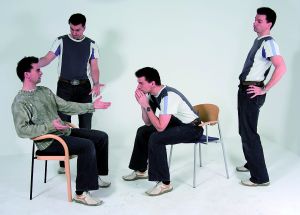 If you are new to the role of volunteer treasurer you may not be aware that the board will look to you for advice on how to design, manage or implement your financial and fundraising strategies.
If you are new to the role of volunteer treasurer you may not be aware that the board will look to you for advice on how to design, manage or implement your financial and fundraising strategies.
If yours is a small club, your strategies might not be very complex, however it’s important to understand that there is more to being volunteer treasurers than just keeping the books.
The Westpac Guide for Community Treasurers says:
You need to prepare reports for members, management and sponsors outlining the current financial situation, looking at possibilities for the future and drawing people’s attention to tax implications, and potential risks or opportunities. “
It goes on to point out that the treasurer should work with the board to develop your financial plans and goals. This makes sense because as volunteer treasurers, you are the people with your finger on the financial pulse of the club.
You need to tell your board more than just what money has come in and gone out. You need to be actively involved in forward planning. You know what money needs to be paid out and what is due to come in. You should be able to spot any times when money on hand will not be enough to cover your expenses, and bring this to the board’s attention.
What do you do when you have made a profit? Do you bank it for use in the future, or can you risk spending it to improve your club equipment or update your software systems? Volunteer treasurers need to be able to advise the board on what is the best course of action to take.
To help you stay on top of your financial information, you may need to use some good accounting software so you can call up reports as you need them. You don’t have to rely on pen and paper record keeping these days, and the guesswork that involves when it’s time to look to the future. Make sure your club has the right system in place to support the treasurer’s role.
If they are going to rely on you for advice, you need to be able to give them an opinion that is based on fact.

 Posted on 9,Jun |
Posted on 9,Jun |
 Posted by Anne
Posted by Anne 




There are no comments yet